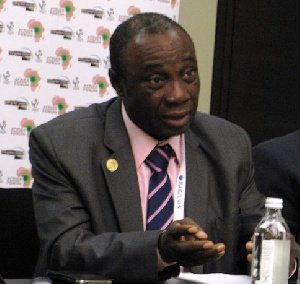GH¢1 Fuel Levy Adjustment Key to Power Sector Stability – Kwabena Donkor

Dr Kwabena Donkor is a former Minister of Power
Former Minister of Power, now the Ministry of Energy and Green Transition, Dr Kwabena Donkor, has justified the GH¢1 increase on petroleum levy, describing it as a necessary measure to stabilise Ghana’s struggling energy sector.
The increment, passed by the Parliament on June 3, under the Energy Sector Levy (Amendment) Bill 2025, has drawn criticism from the public and stakeholders in the energy sector.
Speaking on JoyNews PM Express on June 4,2025, Dr Donkor explained that the GH¢1 increment is a revision of an existing levy, not a new tax
“Let’s get it right, this is not a new levy. Government is just adding to the quantum. So, government has not introduced a new levy,” he said.
The levy aims to raise additional revenue to help address Ghana’s ballooning energy sector debt and ensure a reliable power supply.
According to Dr Donkor, the sector has been facing severe liquidity challenges due to persistent under-recovery of operational costs in power generation.
“For any business, if you under-recover cost, you pile up debt. As we speak, we are still under-recovering. The situation has persisted. The debt has piled up over the years, and it has not changed,” he said.
He emphasised that the problem cannot be resolved by revenue increases alone.
“There is a need for a two-pronged approach. Increasing revenue dedicated to the legacy debt is just one leg. The other leg is to drive down cost in the power sector, raise efficiency, and make sure that at least, we break even,” he stated.
As of March 2025, Ghana’s energy sector debt was estimated at $3.1 billion. Dr Donkor warned that without reforms, the debt will continue to rise despite new revenue streams.
“People need to understand that this GH¢1 is not coming out of nowhere. It’s going to a sector that desperately needs liquidity,” he added.
He also addressed criticisms regarding transparency in the management of earlier levies, such as the Energy Sector Levies Act (ESLA).
While admitting past shortcomings, he maintained that levies are still necessary, provided they are matched with strong financial discipline and reforms.
“You want the lights on? Then you have to fix the system. And that means funding it properly. We’ve had enough short-term patches. Let’s make sure this one is part of a comprehensive fix,” he said.
Watch Wontumi appear unsteady after release from EOCO custody




